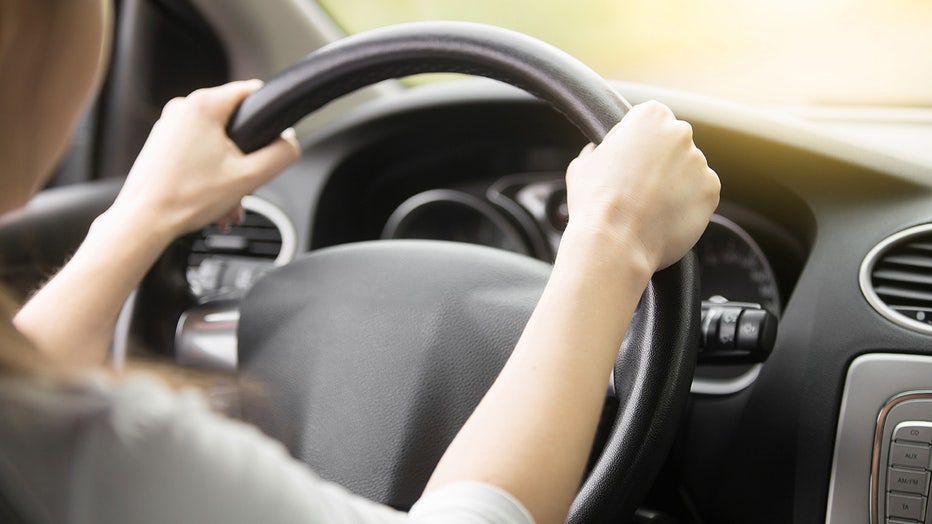1 in 6 teens admits to drowsy driving, survey finds: 'Impaired driving, unequivocally'
Many teens say they've driven while they feel drowsy — and they believe that it’s not as dangerous as driving while drunk or distracted.
That’s just one of the findings revealed in the 2023 Drowsy Driving Survey from the National Sleep Foundation (NSF) in Washington, D.C., which explored 1,124 American teens’ attitudes and behaviors about drowsy driving.
One in six teens reported having driven while drowsy during their first two years behind the wheel, the survey found.
A vast majority (95%) of teens acknowledged that drowsy driving is dangerous — but they don't think it's as dangerous as drunk driving, drugged driving or distracted driving.
"It is important to note that drowsy driving is impaired driving, unequivocally — just like drunk, drugged and distracted driving," said Joseph Dzierzewski, PhD, vice president of research and scientific affairs for the NSF, in a statement to Fox News Digital.
As far as the reasons for drowsy driving, a majority of teens cited schoolwork and jobs as the biggest reasons for their sleep deprivation.
Teens who have jobs said they were twice as likely to have driven while fatigued, to the point that they "had a hard time keeping their eyes open."
Study limitations
The survey did have one chief limitation, Dzierzewski noted — which is the potential underreporting of drowsy driving.
"However, this would mean that the actual rates of drowsy driving are even higher than what we found, suggesting the problem may be more widespread than currently believed," he added.

File: Teen driver (Credit: Getty Images)
"Something we found surprising is that even though motor vehicle crashes are the second leading cause of death among teenagers, most teens rated drunk, drugged and distracted driving as more dangerous," Dzierzewski noted.
"Clearly, there is an opportunity for more education."
ONLINE DANGERS ARE RAMPANT FOR KIDS TODAY — WHY PARENTS MUST KEEP THEM CYBER SAFE
Drowsy driving is entirely preventable, Dzierzewski said, emphasizing the need to teach young drivers about the importance of getting the necessary amount of sleep before operating a vehicle.
In a corresponding survey of 1,349 adults, the NSF found that the adults were even more likely to drive while drowsy — with six in 10 reporting having done so.
Tips for safe driving
Drowsy driving prevention is "everyone’s responsibility," Dzierzewski emphasized.
"Always be on the lookout for drowsy driving warning signs when behind the wheel," he advised.
RELATED: Nationwide study: Dangerous driving on US roads has reached 'alarming highs'
Some of those signs include having a hard time focusing on the road, yawning, blinking frequently, having trouble remembering the last few miles driven, having difficulty maintaining lanes, tailgating — or getting irritated with common traffic occurrences.
If any of those situations occur, it’s important to pull over to a safe place, said Dzierzewski, and get some rest, stretch or drink a caffeinated beverage.
"Only return to the road when you are sure it is safe to drive," he said.
LACK OF SLEEP IS COMPROMISING THE MENTAL HEALTH OF 78% OF ADULTS, SURVEY FINDS
It’s also essential to get the recommended amount of sleep the night before your trip, said Dzierzewski.
NSF recommends seven to nine hours of sleep per night for adults and eight to 10 hours for teens.
"Plan long trips with a companion who can not only look for early warning signs of fatigue, but also help drive when needed," Dzierzewski suggested.
"A good driving companion is someone who stays awake to talk to you and will be aware of your alertness."
When on a long trip, he advises scheduling regular stops every 100 miles or two hours.
"Remember, while [drinking] caffeine, rolling down the windows and playing loud music might help you get safely to your destination, they are not a substitute for sleep."
Roughly 20% of all motor vehicle crashes are related to drowsy driving, according to the AAA Foundation for Traffic Safety.
Among drowsy driving-related crashes, 20% of them involved teens and young adults aged 16 to 24.

